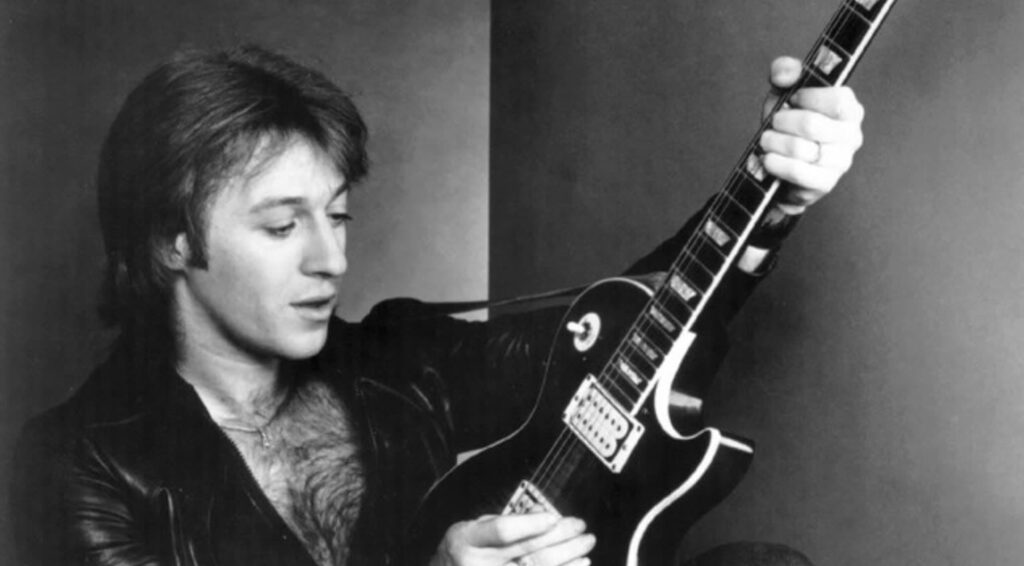
Fantasy: Living an Electrified Dream on the Edge of Reality
Cast your mind back to 1982. The airwaves were crackling with new sounds, the nascent glow of MTV was starting to reshape music, and rock was exploring bolder, glossier territories. Into this electric landscape exploded a sound quite unlike anything else: the driving, synth-fueled power of Aldo Nova’s signature anthem, “Fantasy”. For those of us who were there, hearing that iconic, arpeggiated synthesizer riff kick in was an instant jolt – pure, unadulterated energy beamed directly into our consciousness. “Fantasy” wasn’t just a song; it was a statement. It rocketed up the charts, reaching #23 on the Billboard Hot 100 and an even more impressive #3 on the US Mainstream Rock chart, instantly embedding itself in the soundtrack of the era. It powered its parent album, the self-titled Aldo Nova, to a remarkable #8 spot on the Billboard 200 albums chart, an album that would eventually achieve double-platinum status in the US, proving its enduring appeal.
The story behind “Fantasy” is the story of Aldo Nova himself – a multi-talented musician hailing from Montreal, Canada. Not just a charismatic frontman and guitarist, Nova was also a keyboardist, vocalist, songwriter, and crucially, a skilled studio engineer and producer. This technical prowess gave him immense control over his sound. Signing with Portrait Records, he was given the rare opportunity to produce his debut album, Aldo Nova, himself. This allowed him to forge a sound that was distinctly his own: a potent blend of hard rock muscle, soaring melodic hooks, and cutting-edge synthesizer textures that stood out dramatically from the pack. Inspired by influences ranging from Jimi Hendrix to jazz, and having honed his skills everywhere from local clubs to playing George Harrison in a Beatlemania production, Nova poured his diverse talents into creating a sound that felt both powerful and futuristic. “Fantasy”, the lead single, captured this perfectly, hitting the airwaves and the burgeoning MTV video scene at precisely the right moment. It became ubiquitous, a defining track of the AOR (Album-Oriented Rock) format and an early herald of the glam metal wave that would crest later in the decade.
But what lies beneath the high-gloss, high-energy surface of “Fantasy”? The song plunges into the intoxicating, often precarious, space between reality and escapism. The lyrics paint a picture of a life lived at high velocity, perhaps fueled by the nightlife, the pursuit of sensation, or something more chemical. Lines hint at a world where appearances are deceiving (“see the men paint their faces”) and the boundaries blur (“Can’t you see what this crazy life is doing to me?”). The core of the song seems to grapple with the allure of living in a heightened state, a self-created world – “Life is just a fantasy / Can you live this fantasy life?” It’s a question that hangs in the air, charged with both exhilaration and a subtle undercurrent of danger. Is this dream world a liberating escape or a seductive trap? The music itself mirrors this tension – the driving beat and powerhouse vocals convey sheer adrenaline, while the gleaming, prominent synthesizers lend an artificial, almost hyperreal sheen. It captures that feeling of being swept away, of choosing the electrified dream over mundane reality.
Though Aldo Nova would later have another charting single (“Foolin’ Yourself”) and go on to a successful career behind the scenes, writing for and producing artists like Celine Dion (earning a Grammy for his work on Falling Into You) and Jon Bon Jovi, “Fantasy” remains his definitive moment in the spotlight. It’s often cited on lists of the greatest “one-hit wonders” of the 80s, but that label perhaps undersells the sheer impact and enduring resonance of this track. For many, “Fantasy” isn’t just a song; it’s a time capsule, a jolt of nostalgic energy that instantly recalls the sound, the style, and the feeling of a unique moment in rock history. It’s the sound of stepping into a dream, turning the volume up, and riding the lightning edge of reality.